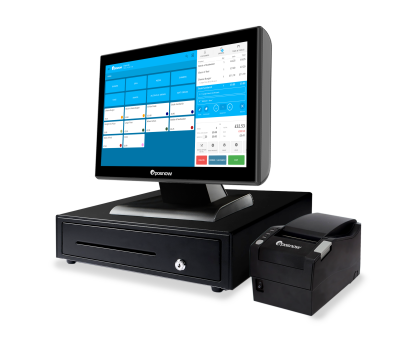20 Important Questions to Ask When Buying a Business
Buying a business is a great way to start your entrepreneurial career. Many of the most powerful business people in the world, such as Elon Musk of Telsa, found success by buying businesses from their original owners.
If you’ve found the business of your dreams for sale, it may seem too good to be true. To ensure that you’re making the right decision in buying the business, you need to examine every angle and consider every downside.
To help you do this, we’ve compiled a list of the 20 hard-hitting questions you need to ask yourself and the current business owner before putting any money down. The more you know about the business, the more confident you can be as you turn it into a success.
Personal questions for yourself
It’s easy to get swept up in the excitement of buying a new business. Before meeting the business owner, make sure you do your homework and have a clear head going into the negotiations. The questions below will help you make sure you have the right mindset to decide whether or not to buy.
1. Why exactly do I want to buy this business?
You want to ensure that you’re buying the business for the right reasons. Is it in the retail or hospitality industry? Do you have previous ownership experience in the industry, and do you think you can make this business work the same way? Is it simply a good financial investment?
If you’re unsure or unsatisfied with your own to these questions, you may want to take a step back and evaluate whether buying the business is the correct decision for you.
2. Why do I want to buy this business instead of just starting my own?
There are pros and cons to both starting a business from scratch and buying an already existing business. It’s important to weigh the two options and see which one seems like it would work best for you.
3. Who else should I speak to after meeting the seller?
If you’ve already met the owner and feel satisfied with the meeting, it’s time to meet the other people who make the business tick. Try and meet with customers, employees, suppliers, and important contract clients. These people will be able to validate the information and give you a better sense of the business.
Personal questions for the owner
There are a lot of questions to ask when buying a small business. This doesn’t mean you should turn your meetings with the current owner into interrogations, but you do need answers to make informed decisions.
4. Why are you selling the business?
There’s always a reason the owner is selling the business. Whether it’s a good or bad reason is up to you to find out. It may be that they’re moving on to a new opportunity, or they’ve built the company as best as they can and it’s time to retire.
You might get an inkling of current problems the business is facing, which isn’t always a bad thing so long as you are being told an honest overview of the situation.
5. How long have you owned the business?
The length of time that the current owner has owned the business will reveal a lot about the company. Longevity is a great indicator of the future success of the business, especially if the business wasn’t originally theirs to begin with. Asking about the previous owning history is a good idea, too.
6. How many hours do you spend on the business per week?
Running a business is hard work and if you want to make sure it’s successful you’ll probably need to spend quite a lot of time working. While you can never be certain of how long your week will be, by asking the current owner how much time he spends on the business, you can get a rough idea.
7. How much of the business’ success do you attribute to personal loyalty rather than business loyalty?
Is customer retention high because of the owner’s personality or because of the services? This is a particularly important question to ask if you’re buying a family-run business.
Of course, most businesses will have loyal customers who are used to things being the way they are. Building customer loyalty can be very difficult if you plan to change things.
8. How much do you currently pay yourself?
As a fellow entrepreneur, the current owner will understand that you’ll want to know how much you can expect to earn. While conversations about money can be awkward, it’s crucial you understand what your financial future will look like.
Gain all the advantages of an EPOS system with detailed, flexible, downloadable reports, and so much more:
- Manage and update products quickly with easy to use software
- Expand your business into multiple channels and integrate with a variety of online platforms
- Manage multiple locations and salespoints with multi-site management
- Keep queues short with streamlined, modifiable sales processes
- Choose a setup that suits you with software and hardware options

Questions about the asking price
When buying a business, you and the current owner will have two different ideal prices. By asking the right questions, you can both get a better idea about the other’s intentions. This, in turn, will lead to a smoother sale for both parties.
9. What is the yearly gross revenue and profit margin?
An honest seller will not hesitate to show you the exact figures regarding the profit margin of the business. You’ll want to know how much you can earn from this business, as well as what the current overheads are.
10. How healthy are the books?
Along with an accountant or financial advisor, scrutinize the past three to five years’ financial statements. Look at tax returns, cash flow statements, balance sheets, contracts, payroll, and investments to ensure everything is financially sound.
11. Has your asking price been appraised by an external auditor?
It’s possible that the current owner will have his own personal valuation and an evaluation completed by an independent auditor. If these figures are significantly different, it may indicate that there’s more going on beneath the surface.
12. What liabilities are attached to the business?
If there are any pending debts tied to the business, the owner should disclose them. You should also find out about the mortgage rate of the business premises, equipment bought on hire purchase, and long-term contracts with existing clients.
13. What assets come with the business?
This includes tangible (things like delivery trucks, equipment) and intangible (goodwill generated, social media accounts) assets of the existing business. You want a comprehensive inventory of everything you’ll be getting in the sale. Another important asset to enquire about is the list of profitable clients.
14. What is your goodwill valuation of the business?
The goodwill value is the amount someone is prepared to pay for a business above and beyond the value of its assets. This might include the strength of a business's brand, reputation, employee expertise, customer databases, and any other aspects of a business that add value to a buyer.
Questions about business operations and legal obligations
At this point in the negotiations, you should know what this business will cost and how much money it can generate. It’s time to move on to what you’ll be able to do as the new owner.
15. Does the business have any previous or pending lawsuits?
If the business for sale has a history of legal trouble, this will set red flags waving. Inheriting a business with a poor reputation or known bad practices can be difficult to recover from financially and could impact your future business ventures.
16. What permits and licenses will I have to renew?
Most businesses have some sort of licensing specific to their industry. Asking the current owner about this will save you a significant amount of time and possible legal trouble down the line.
17. What does your current business plan look like?
The seller may let you see their current business plan, which will give you an indication of projected business development and expansion that hasn’t already been disclosed. This might also tell you more about why the current owner is leaving.
18. Who are the key employees?
Good employees can add an incredible amount of value to a business. If you’re planning on replacing some existing employees, remember that they likely have years of experience in that company that you don’t, so their knowledge and understanding of the operation is not something to underestimate.
19. Do you have a plan on how you’d like the sale to be financed?
Most small business lenders insist that sellers take a standby position for about two years. This is when the buyer takes a loan to cover the settling-in period of the business. In some cases, the seller will finance a loan themselves, known as seller financing.
20. Do you have any advice for running this business?
Perhaps the previous owner has made grievous marketing mistakes or has worked with a dodgy supplier in the past. In good faith, ask for honest advice about running this business and how to help it flourish in the future.
Secure your business’ future
If all goes well with the sale, you’ll be the proud new owner of an established business. To give the best chance for success, you need a point of sale system that works for you. The Epos Now Complete Solution is designed with the business owner in mind.
If you’d like to know more about Epos now systems, get in touch with our expert team below.




